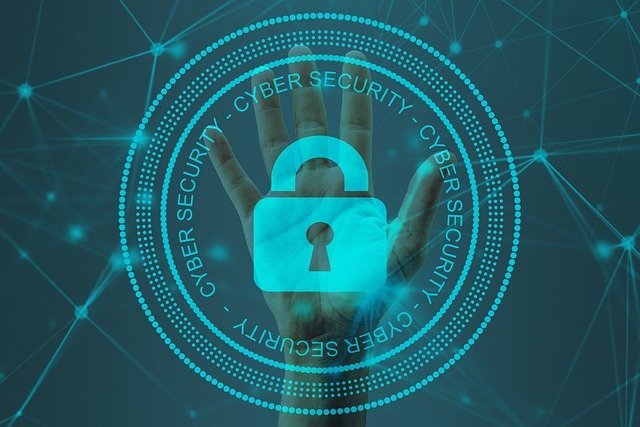In an increasingly digital world, cybersecurity has become a critical concern for individuals, businesses, and governments. The demand for skilled cybersecurity professionals is soaring, making it an attractive and lucrative career option. If you’re interested in protecting digital systems, networks, and data from cyber threats, starting a career in cybersecurity is a wise choice. This comprehensive guide will walk you through the steps to embark on your cybersecurity journey.
Why Choose a Career in Cybersecurity?
Before delving into the specifics of starting a career in cybersecurity, it’s essential to understand why this field is so appealing:
- High Demand: Cybersecurity professionals are in high demand worldwide. The constant evolution of cyber threats means that organizations are continuously seeking experts to protect their assets.
- Good Salary: Cybersecurity jobs often come with attractive salaries due to the scarcity of skilled professionals. Many roles in this field offer competitive compensation.
- Diverse Career Paths: Cybersecurity encompasses a wide range of roles, allowing you to choose a path that aligns with your interests and strengths. These roles include ethical hacking, security analysis, incident response, and more.
- Constant Learning: Cybersecurity is a dynamic field that requires continuous learning and adaptation. If you’re intellectually curious and enjoy problem-solving, this is an excellent fit.
- Global Relevance: Cybersecurity has global relevance, making it a versatile career. You can work in various industries, including finance, healthcare, government, and technology.
Steps to Start a Career in Cybersecurity
Now that you understand the appeal of a cybersecurity career, let’s explore the steps to get started:
1. Educational Foundation
A strong educational foundation is crucial. While some cybersecurity professionals are self-taught, most have at least a bachelor’s degree in a related field, such as computer science, information technology, or cybersecurity. Consider pursuing a degree program that offers cybersecurity coursework.
2. Learn the Basics
Familiarize yourself with the fundamentals of cybersecurity. Study concepts like encryption, network security, and malware analysis. Online courses, textbooks, and tutorials are excellent resources for building your knowledge.
3. Hands-On Experience
Practical experience is invaluable in cybersecurity. Set up a lab environment to practice your skills and experiment with various tools. Capture the Flag (CTF) challenges and online platforms like Hack The Box provide hands-on learning opportunities.
4. Certifications
Certifications validate your expertise and can significantly enhance your career prospects. Consider pursuing certifications like:
- CompTIA Security+: An entry-level certification covering essential security concepts.
- Certified Information Systems Security Professional (CISSP): A globally recognized certification for experienced security professionals.
- Certified Ethical Hacker (CEH): Focuses on ethical hacking techniques.
- Certified Information Security Manager (CISM): Emphasizes management and governance of information security.
5. Networking
Build a professional network in the cybersecurity community. Attend conferences, join forums, and connect with experts on platforms like LinkedIn. Networking can open doors to job opportunities and mentorship.
6. Internships and Entry-Level Jobs
Consider internships or entry-level positions in IT or cybersecurity to gain real-world experience. These roles can provide exposure to different aspects of cybersecurity and help you build your resume.
7. Specialization
Identify your areas of interest within cybersecurity. Common specializations include penetration testing, threat analysis, security engineering, and compliance. Tailor your learning and certifications to your chosen path.
8. Stay Informed
Cybersecurity is an ever-evolving field. Stay updated on the latest threats, vulnerabilities, and security trends by following industry news, blogs, and podcasts.
9. Ethical Considerations
Remember that ethical behavior is paramount in cybersecurity. Always adhere to legal and ethical standards, and consider pursuing certifications like Certified Ethical Hacker (CEH) to ensure you understand the ethical dimensions of your work.
10. Continuous Learning
Continuously upgrade your skills and certifications. Cybersecurity is a field that demands ongoing learning to stay ahead of evolving threats.
Landing Your First Cybersecurity Job
Once you’ve prepared yourself for a cybersecurity career, it’s time to land your first job:
- Craft an Impressive Resume: Highlight your education, certifications, hands-on experience, and any relevant internships or projects.
- Job Search: Look for job openings in your chosen specialization. Entry-level positions may include titles like “Security Analyst,” “Junior Security Engineer,” or “Security Administrator.”
- Interview Preparation: Be ready to discuss your knowledge, experience, and problem-solving skills during interviews. Be prepared for technical questions and scenarios.
- Demonstrate Your Skills: Consider creating a portfolio of your work, such as write-ups of security challenges you’ve completed or reports on vulnerabilities you’ve discovered.
- Networking: Leverage your professional network to find job opportunities and obtain referrals.
- Internships: If you’re struggling to find a full-time position, consider internships to gain experience and improve your chances of landing a permanent role.
Conclusion
Starting a career in cybersecurity is a rewarding journey that offers substantial opportunities for personal and professional growth. By building a strong educational foundation, gaining practical experience, earning relevant certifications, and staying committed to continuous learning, you can embark on a successful and fulfilling career in cybersecurity. Remember that cybersecurity is not just a job; it’s a mission to protect digital assets and data from evolving threats in our interconnected world.
Happy Learning,



